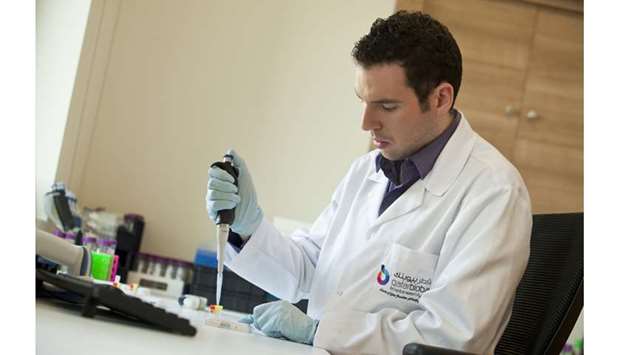Qatar Biobank, a member of Qatar Foundation for Education, Science and Community Development, conducted the first cohort study on childbirth that involves the child and the parents in Qatar, with a focus on pregnant women, to examine the impact of environment, genetics, nutrition and social aspects on the health of children.
The preliminary results of this study, which is considered the first of its kind in the Middle East region, showed that 70 percent of women are overweight, 37 percent have gestational diabetes, 20 percent have a thyroid disorder, 10 percent have reported mental disorders and nine percent were diagnosed with high blood pressure.
This study is now in its experimental phase, as it involved a total of 216 pregnant women and 76 fathers so far. The study aims to involve 3,000 families mothers, fathers, and children and follow the journey of the child until they are five years old. One of the main strengths of the study will be the large number of participants. The data collected from this large study sample will allow for research on multiple results.
Dr. Eleni Fthenou, a scientist at Qatar Biobank, stated that no one has done this before in the region, specifically for birth cohort studies, adding that unlike other birth cohort studies done in the Middle East region that were built on specific research hypothesis, the study in Qatar will provide an excellent opportunity to address a broad range of research questions using innovative approaches.
She pointed out that this project aims to investigate the impact of adverse birth outcomes and chronic diseases development, adding that the study involved 31 nationalities, both Qataris and long-term residents who have been living in Qatar for 15 years or more. Qataris represent 28 percent of the sample population, while long-term Arab residents are at 54 percent, and other nationalities stand at 18 percent.
She clarified that while the Qatar Biobank study was ready to move to the second phase, the Covid-19 situation has caused a delay. In the second phase, the team is expected to collect data from newborns and toddlers, with mothers also being tracked with their babies in the first month after delivery. The team will also collect data related to breastfeeding and postpartum depression, in addition to a follow up on the baby at six months, one year, two years, and finally at four years. All the collected data will be linked with multiple health outcomes at different times.

Qatar Biobank
